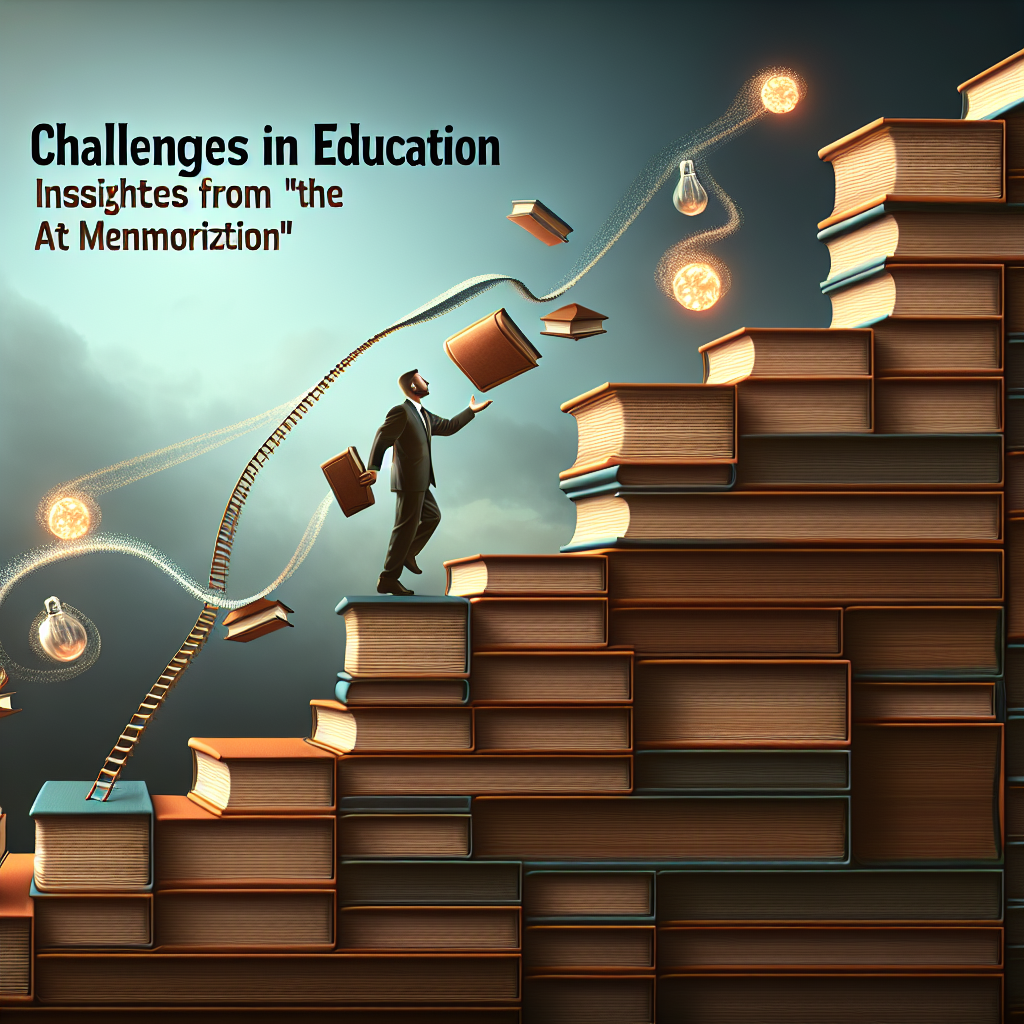The assertion that education has established a monopoly on social mobility brings to light a critical issue in contemporary society. With the belief that a well-rounded education should guarantee upward mobility, citizens find themselves entrenched in a system that lacks accountability and quality assurance. The prevailing concern is that federal funding for education, primarily allocated through student loans, creates a financial environment that rewards institutions based on enrollment numbers rather than the quality of education provided. Consequently, educational establishments have little incentive to innovate or enhance their programs, leading to mediocrity and perpetuated inequality. The gravity of this issue is underscored by the acknowledgment that no nation has successfully crafted an exemplary educational framework, suggesting that a global crisis in education exists, one that demands urgent attention and innovative solutions.
As a parent, the quest for quality education for one’s children often feels like a moral obligation, akin to ensuring their survival. This sense of responsibility is paramount; adults are entrusted with nurturing the next generation. An emphasis on quality education, rather than mediocrity, is essential. Parents must take a proactive role in shaping an educational experience that prepares their children for success. A personal narrative emphasizes this point, illustrating an approach to early education centered on reassurance and confidence-building. Encouraging children to see themselves as capable and above the traditional academic constraints allows them to engage with learning in a way that transcends mere grade achievement. This philosophy aims to create an environment where education is a source of joy and curiosity rather than dread, fostering critical thinking rather than rote memorization.
Educational priorities can also play a significant role in shaping a child’s learning experience. The importance of physical education, discipline, and academic rigor are often intertwined in a manner that reflects the developmental stages of children. Organized sports, in particular, serve as a foundational tool for teaching life skills such as strategy, teamwork, and resilience. While this may seem unconventional to some, it underscores the intrinsic value of experiential learning and the importance of nurturing holistic development in children. Fostering an environment where sports and academics coexist provides opportunities for children to thrive both physically and intellectually, giving them a more rounded education than a purely academic focus could achieve.
Engagement with literature and philosophical dialogue further enriches a child’s learning experience, promoting a depth of understanding that transcends traditional academic curricula. In this light, the act of sharing knowledge through reading becomes more than a simple task; it transforms into an enriching dialogue that encourages critical thinking and the exploration of complex ideas. However, parents must navigate age-appropriate materials, as encountering subjects that are too advanced, such as Newton’s Principia Mathematica, can hinder a child’s engagement. Instead of merely introducing challenging topics, parents should prioritize discovering literature and philosophical works that resonate on a more accessible level, fostering an enriching environment conducive to ethical and intellectual growth. An emphasis on virtuous characteristics can also play a pivotal role in developing a child’s moral compass, effectively integrating education with the cultivation of personal integrity.
An alarming trend within education is the mediocrity of pedagogical frameworks and teaching methodologies, which fail to equip students with the critical problem-solving skills necessary for innovation and future success. The focus on conformity over creativity has resulted in a learning environment that stifles individual potential while consuming national resources. Furthermore, the grading system often exacerbates this issue by serving as a punitive measure rather than a constructive feedback tool. By fostering a culture of learning where grades are utilized primarily as a means to support educational growth rather than solely for assessment, educators can create an environment where students feel encouraged to embrace challenges. This reframing of assessment focuses on understanding rather than judgment, allowing students to grasp the importance of mastery rather than mere compliance with an educational standard.
Broad reforms in educational structures across the globe are essential to overcome these challenges. While it is crucial that systematic changes begin at institutional levels, there needs to be a collective recognition of the far-reaching consequences of educational inadequacies. The call for a revised grading system and innovative pedagogical approaches is paramount. A potential solution could involve redesigning educational frameworks that prioritize understanding, creativity, and personalized growth. Such changes would foster an empowered populace, capable of addressing the pressing issues of our time. In conclusion, the evolution of the education system is not just a parental concern but a societal imperative, requiring collaboration from all stakeholders to create a sustainable and enriching learning environment that prepares the future generation for the challenges ahead.

